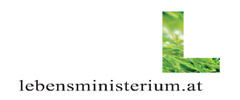“We cannot have safe water without proper waste and wastewater management”
Water and Sanitation Safety Planning in rural Romania - Closing Conference on WECF Project
04.05.2015 |

Claudia Wendland giving a presentation during DBU conference on 23 April 2015
Safe water and sanitation is still a major concern in rural Romania. The World Health Organization (WHO) estimated that 800,000 children are infected with soil-transmitted worms, an alarming signal for unsafe sanitation practices. During the closing conference on 23 April 2015 in Timișoara, Romania, the outcomes of the WECF project “Water and Sanitation Safety Plans for environmental education in schools in rural areas” were shared and future actions discussed.
With over 50 participants, the conference was a tremendous success. Mayors from Timiș county, teachers from the three participating schools, representatives from the school authority of Timiș county, the water operator Aquatim and NGOs attended the conference.
Villages have limited access to safe drinking water and adequate sanitation
Dr. Monica Isacu from the Romanian NGO “Aquademica Foundation” gave the opening speech. Dr. Titus Bojin, head of Timiș county council, kicked off the conference: “We cannot have safe water without proper waste and wastewater management.” Prof. Dr. Elena-Ana Păuncu of the Medical University in Timișoara continued that “one of the main problems of villagers is limited access to safe drinking water” and that “transmission of diseases can only be avoided by healthy personal hygiene, controlling the drinking water quality and maintaining water sources clean.”
According to Dr. Claudia Wendland from WECF, “water safety can be compromised by diverse circumstances like uncontrolled deposit of urban wells, lack of adequate sanitation and leakages in the water system.” Therefore, the WSSP (Water and Sanitation Safety Plan) does not only focus on the better protection and management of drinking water sources, but also of sanitation facilities. Claudia continues, “it is very important to involve pupils in the WSSP activities and to educate them, since they can become local water experts and kick off discussions about the importance of these issues in their community.”
Raising awareness, involving all
Dr. Raluca Văduva from Aquademica presented how the WSSP can be used in villages vulnerable to flooding. The project “Water and Sanitation Safety Plans for environmental education in schools in rural areas” has been implemented over a period of 1.5 years with the aim to raise awareness and to build capacity for environmental protection, particularly in the area of water quality in the rural regions of Romania and Macedonia. The creation of WSSPs will encourage the population to promote local action for the improvement of water supply and sanitation systems, with the active participation of students, youth, teachers, locals and the authorities.
Examples of outcomes in schools
Teacher Artemiza Răducan and her pupils from a primary school in the municipality Satchinez found out that “30 percent of the villagers have private wells with a depth of 30 meter, where manure infiltrates the soil and pollutes groundwater”. Students from Satchinez realised a positive impact of the WSSP activities on the community. Increased awareness of the importance of safe drinking water led to citizens taking samples of their private wells themselves and having the samples tested at the laboratory.

Villagers of the municipality Liebling were facing different problems with their water supply. Interviews conducted by students of the primary school Liebling revealed that drinking water from the public water supply network contained small black particles. Together with their teacher Luminița Bibu, they discussed this issue with the local authorities, who in turn confronted the local water operators. “Then the water operators cleaned the water tanks as well as the pipes and now the water is clear”, said Luminița.
Mayors and water operators avoid responsibility for safe water and sanitation
The experiences with Water and Sanitation Safety Planning in Macedonian villages were presented by Natasha Dokovska from Journalists for Human Rights. She emphasized that awareness lacks amongst the mayors and water operators, and that they do not take the responsibility for safe water and sanitation in their villages.
Next steps
All participants wholeheartedly welcomed the release of the three-part WSSP compendium which is now available in Romanian and Macedonian language as well. They emphasized that there is a need for such a compendium for two target groups: (1) the water operators and mayors and (2) the schools. It was suggested to incorporate the WSSP compendium in the school curricula of both countries.
The participants underlined that they would welcome a continuation of the project activities in order to reach a larger audience. Please support our project so we can continue to raise awareness on the importance of environmental protection, water and sanitation safety: make your (financial) contribution on our crowdsourcing profile.
For more information on the project, please contact:
The project “Water and Sanitation Safety Plans for environmental education in schools in rural areas” is funded by the German Environment Foundation DBU.
Related News
Together for sustainable sanitation and water security worldwide!
Stockholm, 26-31 Aug 2018: WECF participated in the World Water Week 2018 to further support the worldwide implementation of SDG 6
01.09.2018
National Round Table and Training on Drinking Water Issues and Priorities in Macedonia
Working Package 2 – Educational measures for responsible institutions and drafting of regulations, among the on-going project „Water and Sanitation Safety Planning in Romania, Albania, and FYR Macedonia”
27.07.2018
Training for Teachers on Water and Sanitation Safety Planning
Women in Development and WECF organise a 2-day workshop in Shkodra region, Albania
27.07.2018
Menstrual Hygiene Day 2018
Intersecting Menstrual Hygiene Management and the Sustainable Development Goals - an overview by WECF
28.05.2018
World Water Day 2018!
22.03.2018






































